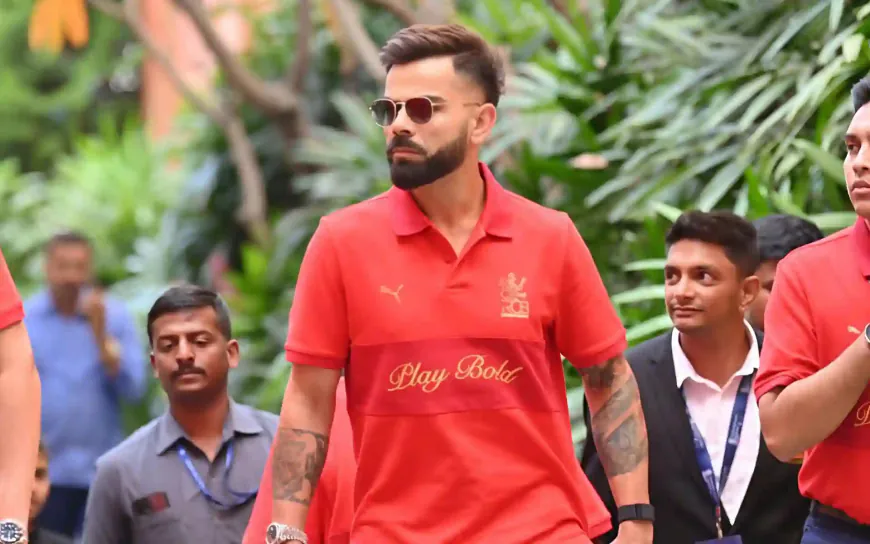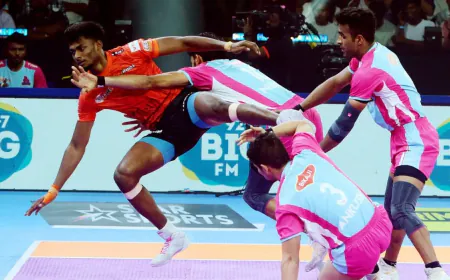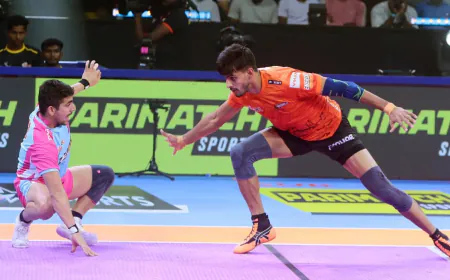Virat Kohli Demands Substantive Sports Reporting: Blasts TV Channels for Giving More Priority to Personal Life than Sporting Struggles
Virat Kohli criticized TV channels for giving importance to his personal life rather than his sporting career. He called for more meaningful sports coverage, dealing with player difficulties and success more than sensationalism.

One of the greatest cricketers in the world, Virat Kohli, has time and again found himself in the middle of discussions not only for his cricket but also for his personal life. Be it his training schedule or diet, anything about Kohli interests the people. But the Indian cricketing legend was recently irked by the way sports broadcasters concentrate on small matters of athletes and not utilizing their platform to uplift and educate sports fans.
A Vision for a Sports-Forward India
Kohli, who is also famous for his work ethic and dedication, has always spoken of a robust sports culture within India. Addressing the Royal Challengers Bengaluru's Innovation Lab Indian Sports Summit, the erstwhile Indian captain stressed the importance of genuine dialogue about sports. He feels that the onus of building a sports-oriented nation does not lie with sportsmen alone as well as policymakers, but also with media professionals, commentators, and spectators who watch sports.
"We want to make India a sports-forward nation. We have the vision in mind. We have the groundwork today. It ought to be a joint responsibility of all parties involved. It's not all about the infrastructure or the individuals who put in the money. It's also about individuals who view. We require education," Kohli stated at the event.
Cricket Coverage Needs to Evolve
In the digital media era, sports reporting has turned into a combination of entertainment, personal stories, and professional commentary. But Kohli asserted that broadcasters must focus on reporting the hard work and training that players undertake instead of going into discussions about their eating habits or lifestyle.
"A television show should discuss the game and not what I had yesterday for lunch or my favorite place for chhole bhature in Delhi. You can't have that in cricket matches. Instead, you might discuss what an athlete goes through," Kohli said.
His remarks stem from his personal experiences, where even a simple lunch during a domestic Ranji Trophy game became a topic of discussion. While Kohli’s journey from being a food-loving youngster to a disciplined athlete is well-documented, he feels there is a greater need to focus on an athlete’s training, mindset, and growth rather than indulging in conversations about their past indulgences.
The Obsession with Kohli’s Personal Life
Kohli has been under constant glare over the years, not only as a cricketer but also as a public personality whose every step is picked apart. Fans and media outlets alike have been more curious about his diet plan, gym schedule, or even cheat days than the subtleties of his game. His metamorphosis from a fat teenager to one of the world's fittest sportsmen is amazing, but he feels that the attention should be diverted from his eating habits to the discipline and hard work involved in sports.
While it is natural for fans to be curious about their favorite stars, Kohli believes that meaningful storytelling can have a lasting impact. Instead of discussing where he used to enjoy chhole bhature, he hopes that broadcasters will highlight what it takes for athletes to maintain peak performance, how they overcome injuries, and the mental challenges they face.
Kohli’s Role in RCB and IPL 2025
With the IPL 2025 season coming up, Kohli has arrived in the camp of Royal Challengers Bengaluru (RCB), ready for another season in the league that has become a major section of his career. There were rumors that he was taking back the captaincy for the team, but the management of RCB thought of investing in the future and handed the leadership responsibility to Rajat Patidar. However, Kohli will remain an integral part of the team, bringing his experience, leadership, and unmatched energy to the squad.
While Kohli’s leadership role within the team might have changed, his impact on the game remains as strong as ever. His presence will undoubtedly be a guiding force for Patidar as the young cricketer embarks on his captaincy journey.
Shifting the Narrative in Indian Sports Media
Kohli’s criticism of sports broadcasters is a call for change in the way cricket and other sports are covered in India. There is immense potential in using media platforms to educate aspiring athletes, provide insights into professional sports, and inspire the next generation. By shifting the focus from personal trivia to the struggles and triumphs of sports professionals, media houses can play a crucial role in transforming India into a true sports-driven nation.
Athletes invest years into perfecting their skills, facing setbacks, and making sacrifices to reach the top. Their journeys are filled with valuable lessons that could benefit young talents who aspire to follow in their footsteps. Kohli’s plea for meaningful coverage is not just about his own experience but about ensuring that sports media in India serves a larger purpose.
Conclusion
Virat Kohli’s stance against sensationalism in sports broadcasting is a reflection of his commitment to the game and his vision for a more mature sports culture in India. His words serve as a reminder that while it’s enjoyable to learn about an athlete’s quirks and preferences, the true essence of sports lies in perseverance, hard work, and dedication. It is the broadcasters' duty to bring to the limelight what lies at the core of athletes' achievements, motivating crores to chase their own sporting ambitions.
As Kohli prepares for another season of IPL, his attention is always on what it really counts—playing the game with intensity and contributing to creating a better future for Indian sports. It is now the time for broadcasters to join that vision and usher in a more insightful and motivating way of doing sports journalism.





















































